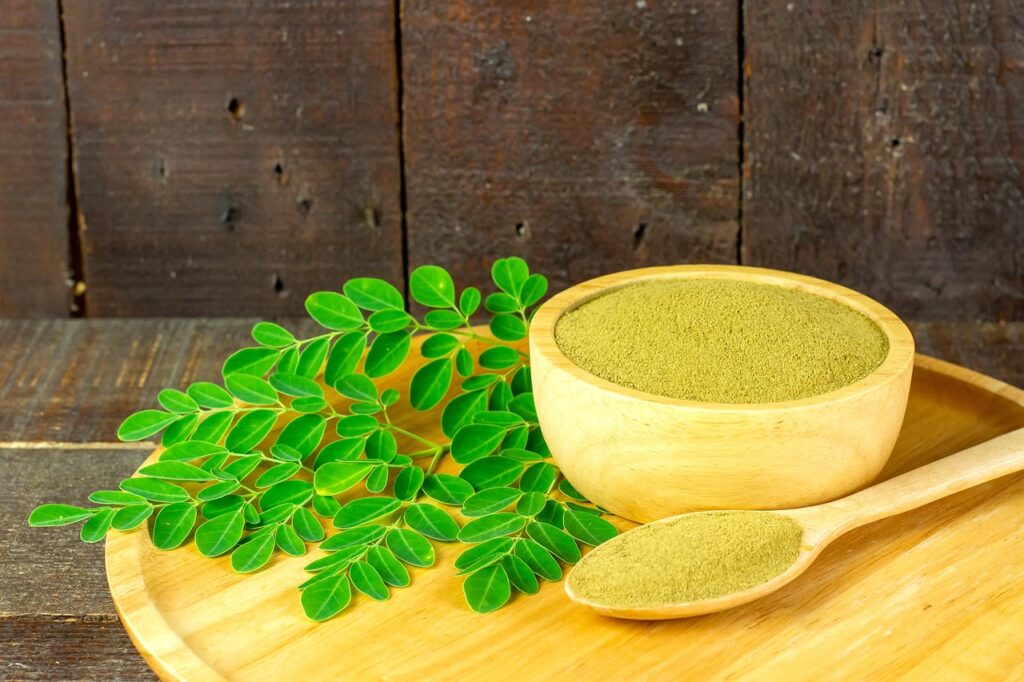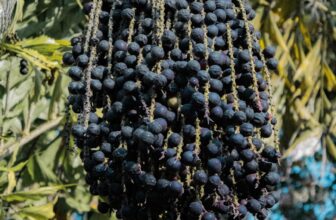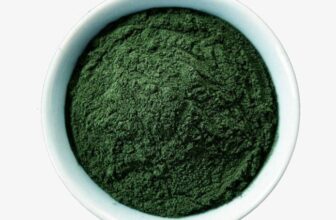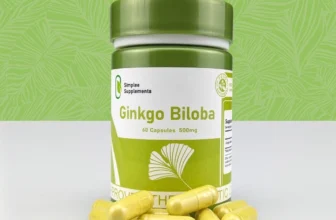Moringa: Uses, Side Effects, and More

Overview
Moringa, often referred to as the “Miracle Tree,” is a plant native to India and now grown in many tropical and subtropical regions, including the Philippines. Known locally as Malunggay, this powerhouse plant is packed with nutrients and has been used for centuries in traditional medicine. But what does science say about its benefits, and are there any side effects you should be aware of?
Let’s explore everything you need to know about Moringa – in simple, everyday language.
What Is Moringa?

Moringa Powder Moringa oleifera is a fast-growing tree whose leaves, pods, seeds, and even flowers are used in food and medicine. It’s rich in proteins, vitamins (especially A and C), minerals (like calcium and iron), and antioxidants, making it a key food source in areas affected by malnutrition.
One major advantage? Moringa is affordable, easy to grow, and retains much of its nutrition even when dried into powder form.
Common Uses of Moringa
People take Moringa for various health reasons. Some of the most popular uses include:
- Boosting energy and the immune system
- Managing blood sugar and cholesterol
- Improving breast milk supply in nursing mothers
- Reducing inflammation and joint pain
- Helping with asthma and respiratory issues
- Combating malnutrition in children
That said, while Moringa shows promise, more solid scientific research is needed for most of these claims.
What the Research Says (So Far)
Here’s a breakdown of what early research suggests about Moringa’s effectiveness for certain conditions:
Possibly Helpful:
- Asthma: Taking 3 grams of Moringa twice daily for 3 weeks may ease asthma symptoms and improve breathing in people with mild to moderate asthma.
- Diabetes: While results are mixed, some studies show Moringa can lower fasting and after-meal blood sugar, especially in people not on diabetes medication.
- Breastfeeding: Some early studies suggest Moringa may help boost milk production, especially in the first week after giving birth.
- Malnutrition: Adding Moringa powder to food can help underweight children gain weight and improve their nutritional status.
- Menopause symptoms: Adding fresh leaves to meals may reduce hot flashes and help improve sleep.
Limited or Inconclusive Evidence For:
- HIV/AIDS (BMI support but no immune benefit)
- Cholesterol reduction (mixed results)
- Vitamin A deficiency
- Many others, including constipation, infections, high blood pressure, dandruff, headaches, stomach ulcers, warts, and more.
While Moringa is widely used for these purposes, more reliable research is needed to fully prove its effectiveness.
Side Effects and Safety
Moringa is generally safe when consumed in food form (like in soups or teas). However, not all parts of the plant are equally safe:
Safe:
- Leaves, fruits, and seeds – when eaten in normal food amounts or used short-term in supplements (up to 6 months for leaves, 3 weeks for seeds).
- Skin use – moringa leaf extract appears safe for up to 3 months.

Not Safe:
- Root and root bark may contain toxic substances that can cause serious side effects, especially during pregnancy.
Special Precautions
Pregnancy: Moringa leaves may be safe during the 2nd or 3rd trimester, but avoid the root, bark, and flowers, which may cause uterine contractions and miscarriage.
Breastfeeding: Leaves may be safe for up to 4 months, but avoid other parts of the plant due to a lack of safety data.
Children: Moringa leaves have been used safely in children for up to 2 months.
Hypothyroidism: Moringa might worsen this condition. Speak with your doctor first.
Possible Drug Interactions
Moringa might affect how your body processes certain medications. Use caution or consult your healthcare provider if you are taking:
Moderate Interactions:
- Liver-processed drugs (CYP3A4 enzymes) – Moringa could speed up or slow down drug breakdown.
- Levothyroxine – Moringa may reduce the absorption of this thyroid medication.
- P-glycoprotein drugs – May affect how long medications stay in your system.
Minor Interactions:
- Diabetes medications – Moringa may lower blood sugar too much when taken with antidiabetic drugs.
- Liver-processed drugs (CYP1A2 enzymes) – Similar concerns about how the liver processes medications.
How to Take Moringa
Moringa can be consumed in many forms:
- Fresh leaves – often added to soups, stews, and Filipino dishes
- Powder – mixed into smoothies, teas, or sprinkled on food
- Capsules/tablets – convenient for daily supplementation
- Pods (drumsticks) – cooked like green beans
- Seeds – roasted or boiled like peas
Common Doses:
- Powder or extract: 6 to 10 grams daily
- Always start small and consult a healthcare provider if you’re treating a specific condition or taking medications.
Where to Buy?
You can find Moringa in health stores, pharmacies, and online platforms like Lazada, Shopee, and Amazon. Look for:
Pure Organic Moringa Powder Best price
Malunggay powder (moringa) pure SULIT pack HRB Best seller
NaturEarth M2 Malunggay Okra Luya Concentrate Tea Drink Editor choice
100% Pure Organic Moringa Powder Best value
Final Thoughts
Moringa is a nutrient-dense, affordable, and natural supplement that can support general wellness, especially when used as part of a healthy lifestyle. While more research is needed to confirm many of its medicinal claims, it has shown promising benefits in areas like immunity, diabetes support, breastfeeding, and more.
As always, consult your doctor before starting any supplement, especially if you are pregnant, breastfeeding, or taking medications.














I always was interested in this topic and still am, thanks for putting up.